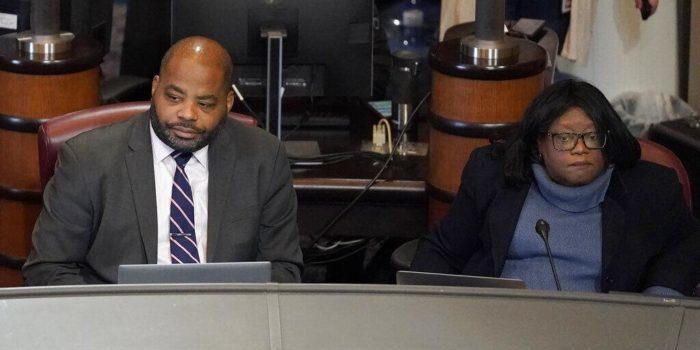(Ria Roebuck Joseph, The Center Square) “The American Indian is the one who deserves reparation in this country,” Task Force members heard from one women among several who brought up Native Americans.
The California Reparations Task Force met on Mar. 3 to report and discuss the progress in developing a comprehensive plan and make recommendations to the governor for future legislative action on reparations.
The Task Force formed as a result of AB3121 which was enacted on Sep. 30 2020 and signed by Democrat Gov. Gavin Newsom. Its role is to study and develop reparation proposals for African American descendants of enslaved people. It holds periodic meetings open to the public. The California Justice department works with CRTF to facilitate consultation with experts on California’s history and reparations.
At the meeting, members of the public raised concerns about who should get reparations, the groups that should be the first to receive them, and the question of lineage.
During the one hour public comment period which came at the top of the meeting, it became apparent that eligibility for reparations was a concern for some attendees.
Mark Johnson, a remote attendee, spoke about California’s first slaves.
“I would like to mention that slaves were brought to California during the gold rush by Confederate sympathizers,” Johnson said. “California was on the verge of splitting into Confederate and Union camps. The only slaves that were in California were brought here by Confederates.”
California joined the Union in 1850 as a “free state.”
“California never had a state statute saying that slavery is permissible. On this note, I would like to say that I don’t believe a single person deserves restitution in any form unless they are a Native American….nobody gets a dollar until the Indians get one,” he concluded.
Although the state’s constitution outlawed slavery in 1849 declaring “neither slavery, nor involuntary servitude, unless for the punishment of crimes, shall ever be tolerated in this state,” slaves that were brought into the state continued under a slavery system.
Claudia Fitzgerald echoed Johnson’s opinion that the Native Americans should be the first consideration for reparations. She was also concerned about the possibility of fraud.
“Why is the state of California doing this? This should be a Federal thing. Just like they did with the Japanese internment. The American Indian is the one who deserves reparation in this country, the most of anyone of us, but besides that listening to all the stuff that they want to do for reparations, tax rebates or whatever, it’s now terrible, complicated and its typical California, is open to massive fraud right from the get-go,” she said.
“If you’re gonna do it, it should be direct lineage to those slaves that were brought in here and not just someone who moved from another country in 1985. I just think that’s wrong….I don’t know why California is doing this. It should be a Federal issue.”
Defining lineage and whose lineage was important as well.
Rachiel Plunket with commented, “Please know that I support lineage-based plans specific to the descendant community, not universal or race-based plans.”
One of the recommendations given by the Task Force in its interim report was the establishment of The California African American Freedmen Affairs Agency, which among other things would be tasked with forming a genealogical department to conduct genealogical research to confirm eligibility of potential claimants.
“I support federal reparations. I also ask again to get the interim report into California libraries, high schools, college campuses, senior citizens centers etc. There’s a lot of education in that report and it will answer a lot of questions before people even present them,” Plunket said.
Another remote attendee suggested starting with what was already known.
I strongly propose a “first round of reparations to the ancestors of black veterans, many of whom are denied benefits of the GI bill, specifically housing loans and educational stipends. I also urge a round of reparations to the black patriots who aided our cause of the American Revolution by assisting through military service, clothing repair, feeding and financial and medical aid of troops,” she stated.
“We have the databases that identify these Americans. The US government has the data base for the GIs and The Sons and Daughters of the American Revolution has established a significant database of black patriots and their lineage. Let’s start with these clear list of Americans who were denied their rights.”
The California Reparation Task Force is scheduled to give its final recommendations in June. Eligibility remains one of the key questions to be addressed. Will it be lineage based for all enslaved African Americans or only those with a history of being domiciled in California? The work of figuring out who will be eligible continues.

